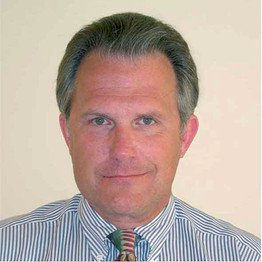Originally published by Advisor Perspectives, January 15, 2019
The brilliance of Regulation Best Interest (RBI) is how it sidesteps the 1940 Advisers Act to marginalize fiduciary duties for retail investors. It proclaims a broker suitability-styled standard to be in the best interests of investors. Industry advocates say it’s a strong investor protection rule.
It’s not. It’s the opposite.
RBI rejects centuries-old principles guiding the prudent care of someone else’s money. This is implicit in RBI’s numerous unstated assumptions, such as that sales and advice are virtually the same – and in explicitly stated assumptions, such as brokers and investors will be harmed if brokers avoid conflicts. RBI sounds loud Tsunami sirens.
SEC commissioners, scholars, investor advocates, fiduciary advisors and investors have objected. Their opposition is important and necessary, but insufficient.
Why? RBI is a Washington insiders’ story. It’s the opposite of reaching a tipping point. After a decade of “small things,” RBI is now only championed by a small elite cohort – perhaps 100 or fewer policymakers, attorneys, industry executives and lobbyists.
RBI cries out for first responders to reverse course and reclaim a real fiduciary standard. Let’s wage the battle outside Washington and on Main Street and with sports, cultural and business leaders. Right, center or left, it doesn’t matter because outside Washington and Wall Street the fiduciary standard is not some complex formula. It’s common sense.
First responders should reach across the aisle to those who openly talk of problems in finance. AEI’s Arthur Brooks, R Street’s Alex Pollock and former CATO CEO John Allison should be among them. They won’t agree with everything fiduciary. But, they will accept a cogent argument that significant steps are required so that Wells Fargo is not always the poster child for financial services.
…the case for a real fiduciary standard is a case for the values and principles that are vital, self-evident and indisputable
This is easier than it seems. The case for a real fiduciary standard is obvious, so much it’s embarrassing to say it out loud. It’s common sense. Financial planner Dan Moisand compares it to brushing your teeth! Not a heavy lift.
More broadly, the case for a real fiduciary standard is a case for the values and principles that are vital, self-evident and indisputable – like the values that inspired our nation’s founders.
Broadway’s hit, Hamilton, tells the story of courage, trust and competence in establishing the nation’s credit and credibility. It’s an important story of first values and principles.
Fast forward 200 years. Republican, Democrat or Independent, look at Bush 41. George Herbert Walker Bush’s life reflected fiduciary duties of loyalty, due care and utmost good faith in practice. Turning principles into practices; virtues into actions.
“A man of admirable private and public character who believed in government service for the good of the country,” said the Wall Street Journal. His biographer, Jon Meacham wrote, “Bush was a steward, not a seer, and made no apologies for his preference for action – steady, prudent, and thoughtful – over ideology.”
Meacham continues, “His life code was, ‘Tell the truth. Don’t blame people. Be strong. Do your best. Try hard. Forgive. Stay the course.’ And that was and is the most American of creeds. Abraham Lincoln’s “better angels of our nature” and George H.W. Bush’s “thousand points of light” are companion verses in America’s national hymn.”
Is this rhetoric? Or guidance for actions of competence? One of the “most glorious moments in American diplomatic history,” wrote Josef Joffe in the Journal, was Bush 41’s service over the dissolution of the Soviet empire. “Victory in the cold war, the reunification of Europe and Germany, the collapse of the Soviet Union on Christmas day 1991.”
German Chancellor Angela Merkel, in the midst of her own party leadership battle, came to Washington last month to honor Bush one last time because without him, she “would hardly be standing here” the Chancellor told reporters.
Federal regulation was bad for investors last year. This year need not repeat. Advocates, and leaders of all political stripes can make a difference. Take the case for fiduciary to thepeople. Appeal to first principles. They get it. They want it. They’ll accept no less.

by Knut A. Rostad
President of the Institute for the Fiduciary Standard
Knut A. Rostad, MBA, is the co-founder and president of the Institute for the Fiduciary Standard, a nonprofit formed in 2011 to advance the fiduciary standard through research, education

